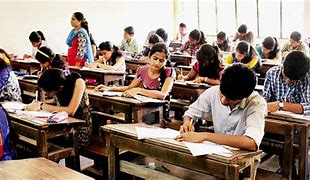The Supreme Court has refused to provide an extra chance to candidates for appearing in Civil Services Examination in 2021 to candidates barred by age or number of attempts from taking it, after some of them approached the apex court citing difficulties in preparation that affected their performance in the October 2020 exam.
The court did not see merit in the grounds on which the candidates were seeking an extra chance, and was also worried about this setting the wrong kind of precedent.
In a February 5 hearing, the government offered candidates who have exhausted their chances an extra one, as a concession, but the court advised it against this, although it said the government is free to exercise its discretion in addressing the grievances of the petitioners.
It wasn’t immediately clear whether the government will now go ahead with this offer.
Dismissing the plea of nearly 150 candidates who approached the Supreme Court, a three-judge bench comprising justices AM Khanwilkar, Indu Malhotra and Ajay Rastogi said: “What is being claimed and prayed for under the guise of Covid-19 pandemic is nothing but a lame excuse in taking additional attempt to participate in the Civil Service Examination (CSE), 2021.”
In its 40-page judgment, the court said the pattern of CSE has remained unchanged since 2015; the candidates got an additional five months to prepare considering that the examination was originally to be held in May 2020; and those petitioning the court chose not to exercise the option to withdraw from the examination despite the Union Public Service Commission (UPSC), which conducts it, opening a second window for withdrawal between August 1-8, 2020, in light of the Covid-19 pandemic. The petitioners were mentally prepared to give the examination, the bench noted.
Refusing to view the case of the petitioners in isolation, the court found merit in the argument of the Centre that any concession to this batch of petitioners will not be fair to the others. All of them, “irrespective of the nature of attempt (first or second, etc) who appeared in the 2020 Examination must have faced the same consequences as being faced by the writ petitioners… the reasoning would equally apply to those who have crossed the upper age barrier”, reasoned justice Rastogi, who authored the judgment.
The court wondered whether a concession to the petitioners could create a similar right for those candidates who withdrew from the examination last year because of a lack of preparation or due to personal reasons.
“If this court shows indulgence to [a] few who participated in the examination in 2020, it will set down a precedent and also have cascading effect on examinations in other streams, for which we are dissuaded to exercise plenary powers under Article 142 of the Constitution,” the judges held.
UPSC also opposed the petition on the grounds that a favourable judgment could affect various examinations and recruitment tests conducted by it and state service commissions.
The Centre initially opposed the petition, but on February 5 offered a “one-time” concession to those candidates who exhausted their last attempt in the examination conducted last year. General category candidates are allowed six attempts. Candidates belonging to other backward classes (OBCs) are allowed nine and those from the scheduled castes and scheduled tribes (SCs and STs) can appear as many times as they want. The age bar for the three categories is 32, 35 and 37, respectively.
According to government data, 486,952 candidates appeared for the 2020 Civil Service Examination. Of this, 3,863 were appearing for their last attempt, and 2,236 were at the age threshold.
Commenting on the one-time concession offered by the Centre at the suggestion of the court, the bench said, “…any relaxation which is not permissible either in attempt or age under the scheme of Rules (for competitive examinations) 2020 apart from being in contravention to the rules, it may be discriminatory, and it is advisable not to exercise discretion in implementing what is being proposed by Centre (respondent 1).”
However, the court left the door open by stating that the Centre will be free to exercise its discretion to mitigate the difficulties faced by the petitioners. It said: “We make it clear that this decision would not restrict the Centre (Respondent 1) or the executive in exercising its discretion in meeting out the nature of difficulties as being projected to this court, if come across in future in dealing with the situation, if required.”





